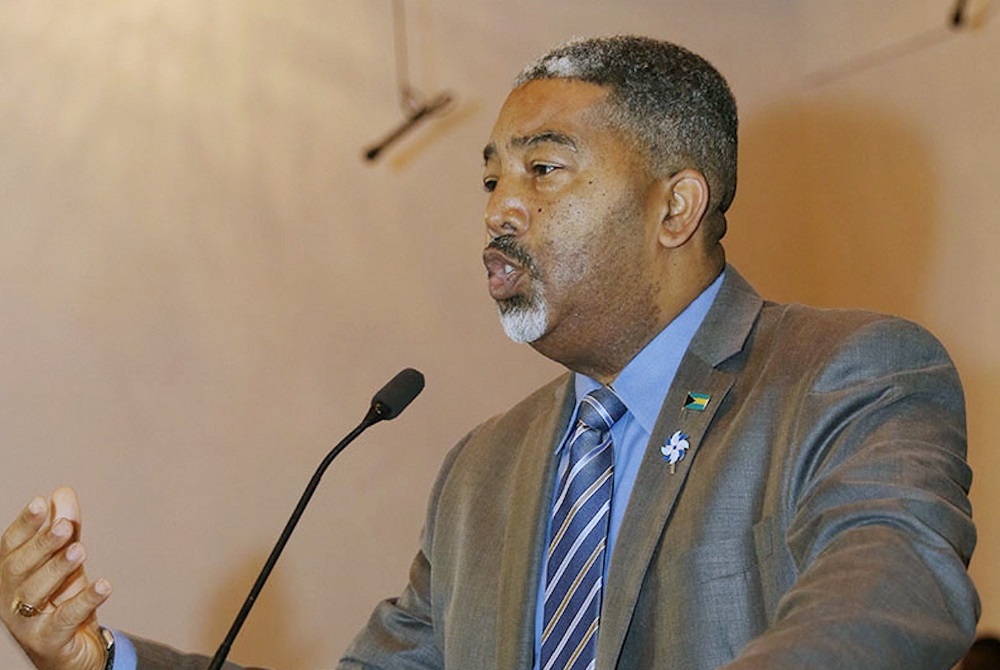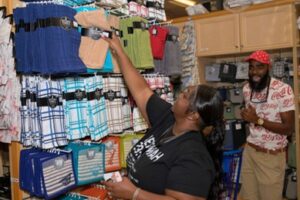#Nassau, June 14, 2019 – Bahamas – Officials at the Urban Renewal Commission (URC), are in discussions with the Royal Bahamas Police Force to have the two Youth Summer Programmes staggered over July and August in order to offer a full programme of activities during the eleven weeks of the school summer break.
Delivering his Contribution to
the 2019/2020 Budget Debate in the House of Assembly Wednesday (June 12, 2019),
Minister of Social Services and Urban Development, the Hon. Frankie A.
Campbell, said the Commission has also held meetings with various church groups
to ascertain whether Vacation Bible School Programmes can also be staggered “to
take advantage of the eleven weeks of summer vacation.”
“Summertime is usually that
time when children are out of school, but parents aren’t on vacation, and so
parents are usually concerned about having someplace for their children to go
where they can be positively engaged and rightfully so (as) children who are
left without much to do could become targets or become involved in
mischief. So nationally, it is important that the various programmes
and/or the various institutions and organizations that offer programmes, come
together to try as best as they can to cover the entire scope of the summer,”
Minister Campbell said.
“My observation, based on
information I have received thus far, is that most of the summer programmes
planned are predominately for the month of July which leaves the month of
August almost vacant and void. There is some school of thought that the plans
are like that in many instances because persons want to take vacations nearing
the end of the summer. While that may be so, we must also be cognizant of the
fact that there are among us, a grouping that does not take annual vacations,
and so my mindset is that we collaborate to ensure that where our kids will
still be here on the island that we provide something positive for them to do.”
Minister Campbell announced
that the Urban Renewal Commission has received five million out of the Ministry
of Social Services and Urban Development’s 2019/2020 Budget allocation to
facilitate its ongoing and new programmes.
The Commission runs a series of
programmes including the annual Urban Renewal Summer Camp Programme, Senior
Citizens Programmes, Community Grocery Distribution Programme, After-School
Programme, Temperament and Anger Management Programme, the annual Back-to-School
Programme, and the Urban Renewal Band Programme.
The Commission has also
facilitated and sponsored annual Christmas Tree Lighting Ceremonies within the
urban communities; Easter Egg Hunts, Thanksgiving Luncheons, Valentine’s Day
events for its seniors, Mother’s and Father’s Day Ceremonies, Motivational
Seminars, seminars for at-risk students and more recently, an Urban Tech
Computer Programme, all designed to uplift urban communities and their
residents.
The Urban Tech Computer
Programme, is a highly-structured, curriculum-based After-School Academic
Programme that is designed to improve educational outcomes among children
residing in the various urban communities.
“It is intended that the
Programme will be expanded to all and that tutoring classes will be held in
each Centre. Trained teachers will be posted in each Centre, equipped with
workbooks, textbooks, mini library facilities, computers and other resources
that will assist children of all ages with their GLAT, BJC, BGCSE Examinations,
school course work and projects,” Minister Campbell told Parliament.
Minister Campbell said URC’s
role is to empower individuals in urban spaces who are considered at-risk or
marginalized due to their economic status, through strategic programmes
designed to restore social wellbeing, rebuild the physical environment and restore
accommodations, and equip these citizens with job skills and opportunities.
The Commission comprises 163
members of staff and operates ten Urban Renewal Centres in New Providence,
including the soon-to-be-opened Flamingo Gardens Centre; five in Grand Bahama
and Bimini; and eight others throughout the Family Islands.
Minister Campbell said the five
million dollars allocated to the Commission will allow Urban Renewal to
continue to fulfill its objectives.
“The five million is consistent with what we received last year and we were able to achieve our objectives and so I am satisfied that if we use the money prudently again this year, we will likewise achieve similar objectives and have the same kind of impact if not more,” Minister Campbell added.
By Matt Maura
Release: BIS




 News3 days ago
News3 days ago
 TCI News5 days ago
TCI News5 days ago














